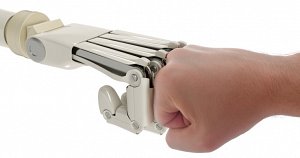Psychology and Computer science come together to innovate education: the challenge of ‘machine teaching’

Individuals learn in different ways, finding some topic easier than others while struggling to learn specific arguments. In an ideal world, every individual should be able to acquire without difficulties any information, despite of the topic involved.
Researchers are aiming at the achievement of an innovative teaching method, featuring the potential of computer technology and the knowledge of psychology, in order to be able to design the ideal lesson.
The idea is following the aspiration of several professors of computer sciences, psychology and educational psychology in the University of Wisconsin, Madison. The goal is to exploit the individual departments’ expertise to achieve a cross-faculty innovation in machine teaching.
The computer scientist Jerry Zhu explains: “My hope is that machine teaching has an impact on the educational world. It’s quite different from how people usually think about education. […] It will give us optimal, personalized lessons for real, human students.”
The concept of machine learning is none other than the one of a subfield of computer science where the researches work on the development of mathematical tools to allow and improve computers’ data acquisition and analysis, as well as patterns detection.
The idea behind the field of study is the consideration of the machine learner just like a student. Researchers work to develop the machine learner to improve its capability of dealing with large amount of data sets, to improve recognition and analysis in practical settings such as, for instance, speech recognition.
In a machine teaching experience, instead, the researcher knows already what information wants to transmit to the learner and, therefore, can arrange an ideal way of knowledge transmission. Those machines use complicated mathematics in order to offer flexibility and deliver the best solution required by the human learner.
Even though it is difficult to define the word “best” in an educational context, being it subject to the individual teacher’s opinions, the machine support can deliver the best solutions in terms of time and quantity of exercises needed for the learners, as Zhu explains: “Can five really good questions teach the material, rather than 20?”
The work is in early stages, but holds an interesting potential for the future of the education.
The cognitive psychology professor Timothy T. Rogers, collaborator of Zhu’s in the University of Wisconsin, explains the idea behind the cooperation between psychology and computer science:
“In order for the machine teaching approach to work, it needs a good model of how the learner behaves – that is, how the learner’s behavior changes with different kinds of learning or practice experiences,” Rogers explains. “Also, the model needs to be computational; it has to be able to make concrete, quantitative predictions about the learner’s behavior.”
Then he added: “Ultimately, we hope that the work can be used to help teachers develop lesson plans and curricula that promote learning in a wide variety of fields,” referring to science, math and reading as examples. “And, just as important, the effort to bring cognitive models of learning to bear on real-world problems is bound to lead to important new advances in our understanding of how people learn generally.”
Jerry Zhu presented some of his ideas and researches at the 29th Annual Conference of Artificial Intelligence, organised in Austin, Texas by the Association for the Advancement of Artificial Intelligence.
The work is currently funded and supported by a two-year seed grant from the UW-Madison Graduate School.
“With machine teaching, it’s conceptually easy, but quite challenging to implement in the real world. It’s a major undertaking,” ends Zhu.
Written by: Pietro Paolo Frigenti
